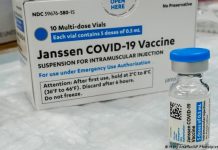(Reuters Health) – In U.S. communities with high levels of racial prejudice, both blacks and whites may have worse survival odds than people who live in more tolerant places, a study suggests.
Researchers examined U.S. survey data on racial attitudes from 1993 to 2002 and linked the responses to death records through 2008, to explore the impact of prejudice on mortality. Altogether they had data from almost 11,000 people living in 100 communities nationwide.
By 2008, 1,651 people died, accounting for about 15 percent of the participants.
Living in a community with higher levels of anti-black prejudice increased residents’ overall odds of death by 24 percent when mortality risk was assessed independent of individual and neighborhood socioeconomic factors and individually held racial attitudes, the study found.
“Racial prejudice compromises health for the community as a whole,” said lead study author Yeonjin Lee, a sociology researcher at the University of Pennsylvania.
The findings challenge a widespread belief that only victims of racial prejudice can be harmed by prejudice, Lee said by email. Instead, the study found prejudice was harmful for the health of both black and white participants.
“The current finding – that adverse effects of structural racism were not specific to blacks – show that structural discrimination not only damages the low-status group members but also majority group members who live in the same community,” Lee added.
Structural racism is when social systems, social forces, institutions, ideologies, and processes interact to create and maintain racial and ethnic inequities, according to John A. Powell writing in the open-access Berkeley Law Scholarship Repository (bit.ly/1gycM4T).
The survey questions that Lee and colleagues analyzed asked whether black people had worse jobs, income or housing due to less in-born ability to learn; and whether black people lacked motivation to get out of poverty.
Additional questions touched on both black and white individuals, asking if one race was more or less intelligent or lazy than the other and whether there should be laws against marriages between the two races.
One limitation of the study is its reliance on survey participants to honestly answer questions about race because some people may try to provide what they think are socially acceptable responses even if they are not truthful, the researchers acknowledge in the American Journal of Public Health.
Researchers also lacked data on some factors that can influence mortality, such as how people eat and whether they smoke or drink.
While the paper doesn’t prove prejudice causes premature death, it’s possible that residents of communities with less racial tension may have a greater ability to band together to advocate for policies and services that help foster a healthier neighborhood, the authors suggest.
Researchers call this social capital, and they found higher levels linked to a 17 percent reduction in community-level mortality. Social capital was lower in communities where racial prejudice was higher, the study found.
It’s also possible that communities with high levels of racial prejudice may create a hostile living environment that triggers certain stress responses in the body that can negatively impact health and mortality, said David Williams, a professor of public health and African-American studies at Harvard University in Boston.
Many little indignities – like being treated disrespectfully or with fear or mistrust – can create a hostile environment in a community and add up to enough stress to trigger a biological response to racial prejudice, said Williams, who wasn’t involved in the study.
Over time, heightened stress can lead to more abdominal fat, heart disease and the buildup of plaque in the coronary artery, all of which have the potential to hasten death.
“Little indignities can predict mortality,” Williams said. “Sometimes we think it takes a big event, but if you are exposed to a series of chronic ongoing little indignities it all adds up.”
SOURCE: bit.ly/1V0KDpY American Journal of Public Health, published online September 17, 2015.












